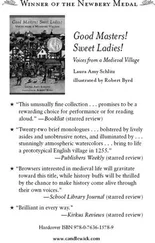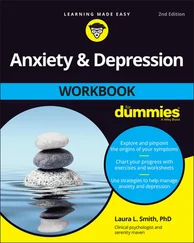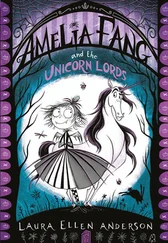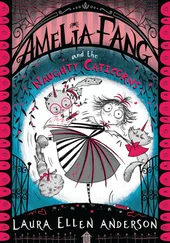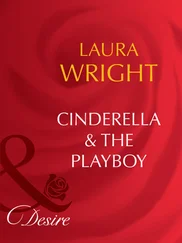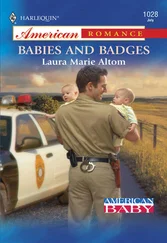Laura Schlitz - Splendors and Glooms
Здесь есть возможность читать онлайн «Laura Schlitz - Splendors and Glooms» весь текст электронной книги совершенно бесплатно (целиком полную версию без сокращений). В некоторых случаях можно слушать аудио, скачать через торрент в формате fb2 и присутствует краткое содержание. Год выпуска: 2012, ISBN: 2012, Издательство: Candlewick Press, Жанр: Старинная литература, на английском языке. Описание произведения, (предисловие) а так же отзывы посетителей доступны на портале библиотеки ЛибКат.
- Название:Splendors and Glooms
- Автор:
- Издательство:Candlewick Press
- Жанр:
- Год:2012
- ISBN:978-0-7636-6246-2
- Рейтинг книги:5 / 5. Голосов: 1
-
Избранное:Добавить в избранное
- Отзывы:
-
Ваша оценка:
- 100
- 1
- 2
- 3
- 4
- 5
Splendors and Glooms: краткое содержание, описание и аннотация
Предлагаем к чтению аннотацию, описание, краткое содержание или предисловие (зависит от того, что написал сам автор книги «Splendors and Glooms»). Если вы не нашли необходимую информацию о книге — напишите в комментариях, мы постараемся отыскать её.
Splendors and Glooms — читать онлайн бесплатно полную книгу (весь текст) целиком
Ниже представлен текст книги, разбитый по страницам. Система сохранения места последней прочитанной страницы, позволяет с удобством читать онлайн бесплатно книгу «Splendors and Glooms», без необходимости каждый раз заново искать на чём Вы остановились. Поставьте закладку, и сможете в любой момент перейти на страницу, на которой закончили чтение.
Интервал:
Закладка:
The ice held. She didn’t slip. She tried to remember what her father had taught her. All at once she seemed to hear his voice: “One foot behind the other, and the toes turned out, my Rose. Bend the front knee and push off from the back.” Lizzie Rose adjusted her feet and launched herself forward.
She glided. It was an almost-forgotten sensation, joyful and free. Another stroke, and she began to pick up speed. “Keep bending the knees,” shouted her father, and she took his advice, though it made her shins ache. The ice was not even and Ruby was in her way, but Lizzie Rose’s face broke into a blissful grin. She spread her arms like wings and took another stroke.
It was even better than she remembered. Up and down the edge of the shore she skated; much hampered by Ruby, who leaped at her skirts, barking shrilly. As Lizzie Rose tried to dodge the dog, her right skate skidded, and she crashed downward. The slickness of the ice broke her fall. She knelt on one knee and shifted her weight upward. In an instant she was skating again, stroking with greater force.
Little by little, the old skill came back to her. She tottered back to fetch the broom and swept a small rink for herself, discovering that the ice was smoother away from the shore. If the cold weather held, she would sweep a larger rink every day. She would bring a length of clothesline from the scullery and tether Ruby to one of the stone urns so that the spaniel wouldn’t trip her. Perhaps she could learn to skate a figure eight on one foot, as her father had done. Perhaps she might teach Parsefall; perhaps she wouldn’t. It was glorious, having the whole lake to herself. Lizzie Rose caught the tip of her skate on a furrow in the ice, tilted wildly, and saved herself from falling just in time.
Her headache had vanished. So, too, had her sense of cold; she was sweating inside the green velvet coat. From time to time she glanced up at the sky. The great clouds were parting, showing shreds of watery blue. Shafts of sunlight turned the lake to mother-of-pearl.
“It’s Christmas,” Lizzie Rose said, for the third time that day. She leaned against the wind like a sailing ship, and her mind was peaceful and clear.

In London, Christmas morning arrived wrapped in fog. Dr. Wintermute was awakened by the pealing of the church bells. He did not rise at once but stared up at the ceiling, shrinking from the day before him. He hoped that one of his patients would need him, so that he wouldn’t have to spend the whole of Christmas Day at his wife’s side. It would be a hideous holiday for both of them. He longed for it to be over.
He waited until the clock struck seven before he rose. He washed and dressed mechanically, then descended the stairs to the breakfast room. Last Christmas, the staircase had been adorned with holly and white ribbons. Clara had pleaded for red ones, but Ada had insisted on white, as being more suitable for a house in mourning. Dr. Wintermute wished he had taken Clara’s part. He tried to remember Clara’s presents from last Christmas. Had there been a doll? Or had the doll been from the year before? He wasn’t sure. Ada would remember, but he knew he would not ask her.
He stopped before the door of the breakfast room, wondering if his wife would be at the table. Sometimes she asked for a tray upstairs. Since Clara’s disappearance, she had eaten very little. As a medical man, he disapproved; as a parent, he felt that her thinness was seemly, a tribute to Clara. His own appetite shamed him, surfacing with ruthless regularity. He might be heartsick, but he was also an active and hardworking man; his stomach insisted on breakfast, luncheon, tea, and dinner. Even now, in his holiday misery, he smelled broiled kidneys and ham, and his nostrils twitched hungrily. He opened the door and went in.
Ada drooped before an empty plate. With some relief, he observed that she was drinking tea; she would take a little nourishment from the milk and sugar she mixed with it. He bent and kissed her, careful not to speak of Christmas.
She turned her head away. Since Clara’s disappearance, she seemed to dislike his touch. He told himself that the rebuff was not deliberate; he must not let it rankle. Silently he filled his plate and sat down at right angles to his wife.
As he unfolded his napkin, Ada spoke. Her voice was so low that he missed the beginning of the sentence, but he caught the words “Kensal Green.”
Dr. Wintermute cleared his throat and tried to speak in a neutral tone of voice. “My dear, I shall not accompany you to Kensal Green this morning.”
Ada put down her teacup with a suddenness that made the china ring. “But we always go to Kensal Green on Christmas Day.”
“Yes. But not today.” He realized that he sounded brusque. “I beg your pardon, my dear. You must recall the last time I was at Kensal Green.” He looked away from her and caught sight of his own reflection in the glass over the mantel. For one split second, he failed to recognize himself and regarded the reflected image as a patient. A man of robust middle age; prosperous, well nourished, but suffering from melancholia and nervous strain . . .
Ada said again, “We always go to Kensal Green.”
“Yes. Perhaps that was a mistake.” He knew he was on dangerous ground, but he went on. “I have sometimes thought that it made Clara unhappy to visit Kensal Green every Christmas. I’ve even wondered if we mourned our dead children at the expense of the one who lived —”
His wife’s head came up sharply. The tears in her eyes brimmed over and began to fall. He reached for her hand, but she stood up quickly, eluding him.
“Ada, my dear, forgive me! I didn’t mean —”
“You did, you did!” She swayed and caught hold of the back of the chair. “You meant that I made her unhappy — that I forced her to mourn. It’s true, it’s true! I was unkind to her the very day she disappeared. It was her birthday, and that hideous puppet show — I wouldn’t let her laugh — I wouldn’t forgive her —” She caught her breath on a sob. “If she ran away, I was to blame —”
“You were not,” he interrupted sharply. He got up and tried to take her in his arms, but she shrank from him. “Ada, she didn’t run away. I am convinced of that. She was kidnapped — and that mountebank Grisini, that monster, had something to do with it.” He pulled up short, wondering if he should tell her of his recent conversation with Lizzie Rose. He decided not to; Grisini’s wards had vanished, and the landlady had no idea where they had gone. “If anyone was to blame, it was I — I allowed that blackguard into this house! But how could I have known? Clara wanted him, and I wanted to see her happy —” He forced himself to lower his voice. “If we blame ourselves, if we blame one another, we shall both go mad.”
Ada had buried her face in her hands. She was sobbing so hard that he could not distinguish her words. “Ada, what are you saying?”
She let her hands fall and gazed at him with such bitterness that he took a step back. “You do blame me,” she contradicted him, “and it’s true. I didn’t love her the way I did the others. How could I, when I knew she might be taken away? I bore you five children, Thomas. Five children in eight years — I carried them in sickness and bore them in pain. You don’t know what that’s like. No man knows. But I loved them, truly I loved them — and then the cholera came, and they were taken from me. All but Clara. I wanted to love her. I tried — I did love her, but then she was taken, too.” She pressed her knotted hands against her breast. “I was a bad mother, I know I was, but I swear to you, Thomas, I never wanted them to die; I never wanted any of them to die —”
Читать дальшеИнтервал:
Закладка:
Похожие книги на «Splendors and Glooms»
Представляем Вашему вниманию похожие книги на «Splendors and Glooms» списком для выбора. Мы отобрали схожую по названию и смыслу литературу в надежде предоставить читателям больше вариантов отыскать новые, интересные, ещё непрочитанные произведения.
Обсуждение, отзывы о книге «Splendors and Glooms» и просто собственные мнения читателей. Оставьте ваши комментарии, напишите, что Вы думаете о произведении, его смысле или главных героях. Укажите что конкретно понравилось, а что нет, и почему Вы так считаете.


